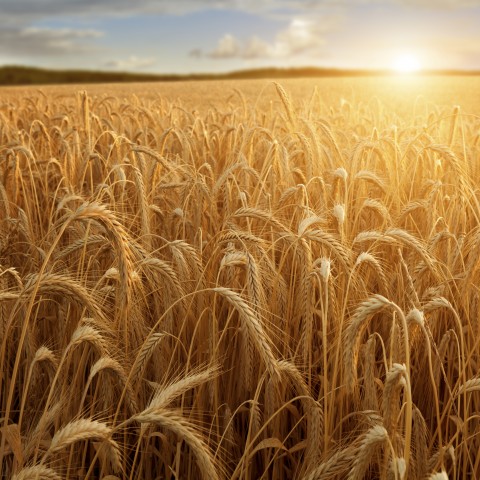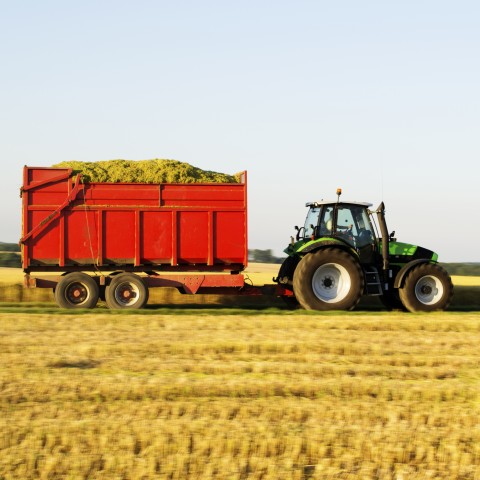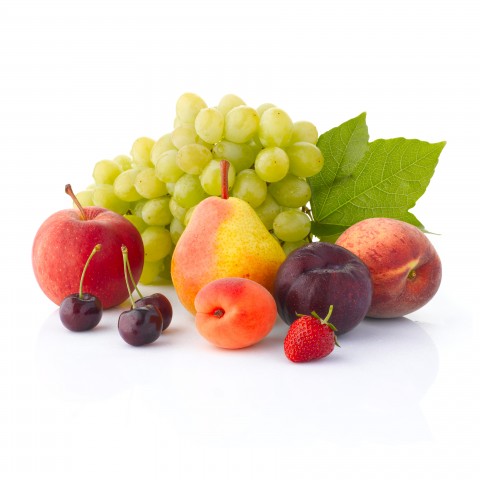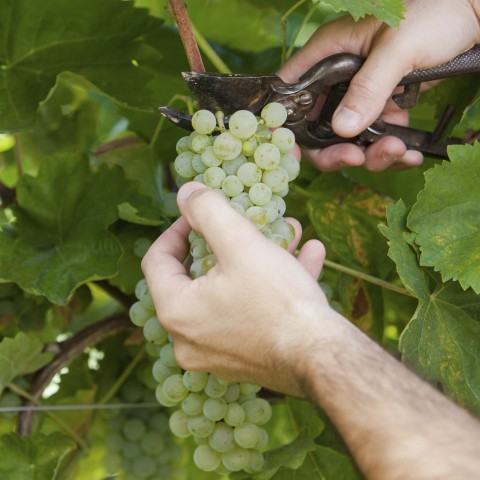Autumn is in the air already…can you believe it? Leaves turning, nippy air, warm drinks, and a cold winter ahead. If you live in the U.S. or U.K., you’re probably looking forward to some great weather and a series of comforting holidays.
In Germany, one such holiday is the Harvest Festival, a holiday very similar to Thanksgiving.
In this article, you’ll learn all about the Harvest Festival in Germany, from what it’s about to how it’s celebrated today. Let’s get started!

1. What is the Harvest Festival?

The Harvest Festival in Germany is similar—but not identical—to Thanksgiving in the United States. It’s a holiday to celebrate the autumn Ernte (“harvest”), as well as show appreciation to God and people working in Landwirtschaft (“agriculture”). People who are in a position to do so are also encouraged to give to the poor.
This is one of Germany’s oldest traditions, and it reflects both the religious nature of the country and the German people’s sense of being one with the land and nature.
- → Make sure to brush up on the Must-Know Autumn Vocabulary and important words for Thanksgiving!
2. When is the Harvest Festival This Year?

Each year, the Harvest Festival takes place on the first Sunday of October, and very often right after the German grape harvest festival (better known as Oktoberfest).
For your convenience, here’s a list of this holiday’s date for the next ten years.
- 2020: October 4
- 2021: October 3
- 2022: October 2
- 2023: October 1
- 2024: October 6
- 2025: October 5
- 2026: October 4
- 2027: October 3
- 2028: October 1
- 2029: October 7
Keep in mind that these dates are based on the official recommendation from the German Catholic Church, given in 1972. Many places in Germany celebrate the Harvest Festival before or after these dates.
- → Of course, you can read our article Celebrating Oktoberfest: Germany’s Most Popular Tradition for more information on this fun holiday.
3. Traditions and Celebrations for the Harvest Festival

There are numerous Harvest Festival activities to look forward to!
The most important activity is that of attending the Thanksgiving church service. Upon walking in the door, one will find that the altars of the church have been decorated with Obst (“fruit”), vegetables, grains, and nuts to honor God. The service normally begins with an appropriately themed sermon, followed by choral music and a Thanksgiving procession. During this procession, the Harvest Queen (or King!), who was chosen by the community, is given a crown.
On the Harvest Festival, Germany comes alive with a variety of Thanksgiving parades. These parades feature floats decked out with flowers and motifs that resemble situations related to the harvest. In addition, participants carry a large crown designed for the parade, signifying gratitude. There’s lots of singing and dancing, with the largest parades featuring over ninety folk-costume and music groups. It’s not uncommon for there to be fireworks shows after parades that take place in the evening.
There have been many songs and poems written for and about the Harvest Festival, which are often sung or recited during celebrations. The most famous of these is called The Seed, written by Joachim Ringelnatz.
As for food, some Germans do eat turkey like people in the U.S. and Canada, though specially fattened chicken is much more common. Also note that most Germans don’t gather with family over the holiday for a feast, as people do in other countries.
- → Learn the German names for popular Fruits and Vegetables and Herbs and Spices!
4. Almabtrieb
While the German Harvest Festival is a big deal in most of the country, people in more rural areas don’t actually celebrate it.
Instead, there’s a special holiday called Almabtrieb. This takes place on October 1 and involves people guiding cows down from mountain pastures back to their barns. The cows are adorned with flowers and bells, making this a sight to see for many of the villagers!
5. Essential Vocabulary for the Harvest Festival

Let’s review some of the German vocabulary words from this article!
- Obst (“Fruit”) — noun, neuter
- Landwirtschaft (“Agriculture”) — noun, feminine
- Dürre (“Drought”) — noun, feminine
- Ernte (“Harvest”) — noun, feminine
- Gewächse (“Plants”) — noun, neuter
- Erzeugnisse (“Products”) — noun, feminine
- Forstwirtschaft (“Forestry”) — noun, feminine
- Grünfutterernte (“Green forage”) — noun, feminine
- Getreide (“Grain”) — noun, neuter
- Weinlese (“Grape harvest”) — noun, feminine
- Ertrag (“Yield”) — noun, masculine
- Dünger (“Fertilizer”) — noun, masculine
- Züchtung (“Cultivation”) — noun, feminine
- Unwetter (“Storm”) — noun, neuter
- Bewässerung (“Watering”) — noun, feminine
Remember that you can find each of these words and their pronunciation on our Harvest Festival vocabulary list!
Final Thoughts
We hope you learned something new about German culture today, and that you took away some valuable information.
How do Thanksgiving celebrations in Germany compare to those in your country? What other autumn celebrations do you enjoy? Let us know in the comments!
If you would like to learn more about German culture and the language, visit the following blog posts on GermanPod101.com:
- Adventssonntag: First Sunday of Advent in Germany
- Celebrating the German Unification: German Unity Day
- Karneval in Germany: German Carnival Season
- Essential Vocabulary for Life Events in German
- Unlock Your German Potential with These Top Netflix Shows
For even more great information, create your free lifetime account today. With our fun and effective lessons for learners at every level, you’ll be speaking German in minutes and fluent before you know it. We hope to see you around. 😉
Happy Harvest Festival, and a refreshing autumn, from the GermanPod101 team!










